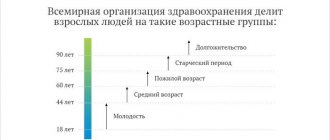Electronic visa to Russia: how to get it?
Read October 7, 2020
Important text: how to travel safely during a pandemic
Read October 6, 2020
Rosaviatsia issued 169 permits to fly abroad: why so many?
Read October 6, 2020
American airlines are laying off employees: do Russian companies have such risks?
Read October 5, 2020
Slovenia is open: how to get there, and where can you go next?
Read October 5, 2020
Nobody flies to Singapore: how to get there?
Read
The end of the journey is a moment that you don’t want to think about at all, and which inevitably comes every time. Travelers know how difficult it can sometimes be to return home.
In English there is the term PTD, or post travel depression (also known as post-vacation blues). I don’t know how to adequately translate this into Russian, and I call this state simply depression or post-travel blues. It manifests itself as lethargy, apathy, lack of motivation, a feeling of nostalgia, and loss of appetite.
The longer the journey and the more successful it was, the more difficult it is to return to reality. Blues may not come immediately, but a few days after returning. Especially if those days were filled with unpacking, meeting friends, and even the simple pleasure of finally sleeping in your own bed. But as soon as the initial excitement subsides, life begins to seem gray.
The good news is that this condition passes. The bad news is that it may take several weeks, or even more. After living in Australia for a month, it took me several months to come to my senses. When I realized that the generally familiar process of adaptation was taking a little longer, I began to look for faster ways to bring myself back to normal. They exist and time after time they help me return to life after traveling with minimal losses.
So what can you do?
Take a break between travel and work
If possible, try not to return to work right away. Nothing makes you feel a return to reality more keenly than the sharp contrast between rest and activity. Even a day or two will allow you to overcome jet lag (change of time zones), unpack your things, get yourself in order, meet with friends or simply sort out your impressions.
It is not always possible to postpone immersion in a routine, but then at least try to plan the easiest things for the first days.
Why does depression appear after vacation?
There are several reasons why people feel depressed after vacation:
- Even during a short vacation, a person manages to get used to the warm sea and sunny weather. After this, it is quite difficult to perceive the gray Russian autumn with rain and slush.
- There are people who love their work so much that they return to it with pleasure after vacation. But most would prefer to rest for a few more weeks. Moreover, after a vacation at work, many people face a lot of unresolved issues, which causes stress and overexertion.
- On vacation, people get used to waking up late, but their work schedule requires getting up early. Our body does not have time to rebuild itself, as a result of which we feel lethargic.
- If a long-awaited vacation turns out to be unsuccessful, then upon returning home depression may begin due to lost money and poorly spent time.
Depression after a vacation begins in most Russians who return from a vacation at sea
Not all people experience depression after a vacation. Post-vacation syndrome is most often experienced by representatives of certain psychotypes and professions:
- stressful professions: managers, doctors, teachers, businessmen, secretaries and accountants. After their vacation, these people will have many accumulated issues that need to be resolved;
- service sector employees: salespeople, bartenders, waiters. On vacation, they were cleaned, cooked and entertained, but at work they have to do all this themselves, without thinking about themselves;
- melancholic and phlegmatic. Representatives of these two psychotypes have a hard time adjusting and therefore depression is commonplace for them.
Stay a traveler anywhere
When we travel, we often do things that for some reason we wouldn’t think of doing at home. It happens that on a trip you manage to visit three museums in a week, but in your hometown you have been going out to look at the new park in the center for three years (unsuccessfully).
Try exploring the place where you live as if you were a tourist. Rent a bike and go out of town, go to a museum, book a tasting tour to a winery, go to an Asian restaurant, go skydiving, of course. If you enjoy spending your time this way, why stop after traveling?
Take a stand-up paddleboarding course or learn to ride a motorcycle to apply the skills to your next trip. I call it being a traveler, no matter where you are.
How to prepare yourself for work after vacation?
We want to give some tips on how to “extend” your vacation and gradually get into a working mood.
- Did you like the unusual cuisine in the place where you vacationed? This means that you can master it, at least partially, and pamper yourself with “overseas” dishes once a day. The ingredients for unusual dishes will probably be found in supermarkets, and the Internet will provide step-by-step instructions for preparing them. Both family and colleagues will be pleasantly surprised.
- Share your emotions with your friends on social networks. There is no need to post 500 photographs of the same type: this is of no interest to anyone. But a slideshow with music from the best shots or a mini film from short videos is what you need. Selecting and viewing photos will take you back to where you came from.
- Make a photo collage with your funniest pictures and decorate your room with it. It will be nice to wake up in the morning and see yourself cheerful and carefree. You will definitely want to look like this always.
- Organize a small celebration at work where everyone can share their impressions of their last vacation. And those who are just planning to relax, let them talk about their plans.
- Distract yourself from other equally pleasant upcoming events: a child’s birthday, a friend’s wedding, grandma’s anniversary, New Year, after all. And how many things need to be done before this event!
- Try not to get irritated by little things at work, concentrate only on the good and joyful.
- Be sure to take care of your health: morning exercises, evening jogging, fitness a couple of times a week, dance studio - it doesn’t matter, because movement and life are inextricable concepts.
- Take at least half a day off every weekend. No, a weekly thorough cleaning of the apartment, a report on the world around us and a trip to Auchan is not a vacation. This is the same routine that spoils your mood and makes you lose the desire to create. Walks, forays out of town, visiting concerts, museums and exhibitions, visiting people - they give new positive impressions, which is worth taking advantage of.
- If you are sick, take sick leave. Believe me, your enterprise will not close because of this, and the Earth will not move off its axis. Are they telling you that you can’t get sick, otherwise you’ll be fired? Run away from this job: the most important thing you need to value is your health, otherwise you simply won’t need any work.
- Perform your duties clearly without being distracted by outside matters. Disabling Facebook on your work computer will save a couple of hours of work time, and then you can go home on time.
- Read fiction every day. This is a great opportunity to travel and learn new things without leaving home.
- Start planning and dreaming about your next vacation. It is very important when the next step in each case is planned.
Do you have your own secrets on how to get back on track immediately after vacation? Share them in the comments to our article!
Who among us, returning from vacation to work, has not found that work has become uninteresting, colleagues are annoyingly intrusive, and the boss is overly picky. The office atmosphere is literally stifling after several weeks of relaxation. According to statistics, more than 80 percent of workers who wrote a letter of resignation did so shortly after returning from vacation.
Most of them decided to change their lives because they could not cope with post-vacation depression. What it is? A psychological state when the body has to adapt from an easy vacation regime to a tough work schedule. During vacation, everything changes: daily routine, eating habits, surroundings, and very often climate.
For many, the process of returning the body to the “old rails” is very painful. And then those same resignation letters appear, caused by returning to work after vacation. Experts assure: there is no reason to panic - the phenomenon is common. And usually a few days after returning to work it goes away on its own without the help of specialists or medication.
Create a challenge for yourself
I don’t really want to speak in the spirit of motivational quotes, but the truth is that traveling really makes you look at your life in a new way. Along the way, you learn something all the time, improve yourself. When it ends, there is a feeling of emptiness. Therefore, an effective way to deal with routine is to find a new challenge. Get an additional qualification or specialty, join a gym, find a new job.
You don't have to take drastic measures. You can come up with something simpler, for example, learn thirty new English words every week or read six new books before the end of the year. To make it more interesting, find a challenge on the Internet and join it.
Keep in touch with people
While traveling, you probably came across helpful people who showed the way, helped with timetables at train stations, or otherwise showed friendliness and hospitality. At home, you can do the same for other travelers. Someone is confusedly turning the card in their hands or can’t figure out the terminal at McDonald’s - ask if they need help. Leave reviews on Google about places you've visited, answer queries from strangers about places you know well.
If you're a social person, you can sign up for CouchSurfing, host travelers, or give tours around your hometown. If you are lucky enough to meet interesting people while traveling, spend a little time and effort to keep in touch with them. For many years now I have been visiting friends in other cities, and my traveling friends come to visit me.
This way you will stay on the journey all the time and communicate with like-minded people, even when you are at home.
We have already talked about couchsurfing in more detail.
How to avoid depression after vacation?
First of all, have a good vacation. To do this, you need to adhere to some rules that will help make your vacation as non-conflicting as possible with your future return to work.
You need to rest for at least three weeks. The first week is adaptation, the second is relaxation, the third is adaptation to returning. A shorter vacation will lead you directly to post-vacation depression - the body will constantly experience stress due to the fact that it will not have time to adapt to the new regime.
Leave your laptop, iPhone and other gadgets at home with which you can control your work process. Ideally, you don’t need a mobile phone on vacation. Completely forget about work and switch to relaxation.
Choose vacation spots that you like, not your friends, public opinion, family or colleagues. In this matter you need to be selfish. By following someone’s lead and spending your vacation where you don’t want, you will not receive complete moral satisfaction from your vacation.
Young and healthy people can safely go for extreme sports far from home in accordance with their desire and financial capabilities. It is better for older people to relax in climatic conditions similar to their native places.
The second component of returning from vacation without depression is a properly organized entry into the work rhythm. Use these simple tips to avoid the hassle of returning to work.
Return from vacation at least two to three days before starting work. This will leave a little time to transform from a vacation state to a normal one.
In the first days, don’t take on all the chores; let your body gradually get into a working rhythm.
Start your working day by planning all your tasks, do not overdo it when making plans. Remember what Kozma Prutkov said in such cases: “You cannot embrace the immensity.”
Rest during the working day for five minutes every hour. It is better not to go out to smoke during these breaks.
When you return from vacation, do not rush to inform everyone about it, call all your friends and acquaintances. Surely, during your absence, someone got into trouble, and you will have to delve into other people's problems. Bad news will find you later.
Watch your mood. Perhaps not only you, who have just returned from vacation, are experiencing difficulties, but also your colleagues who had to work for you. Smile more often and be condescending to others.
Try to walk more: in the morning, at lunchtime, before bed. Sunlight gives a boost of energy. Get at least seven hours of sleep, and if you feel sleepy, sleep even more.
Start taking a vitamin-mineral complex.
Eat foods that lift your spirits: bananas, chocolate. But don't overdo it. Many people start stress eating and gain excess weight as soon as they return from vacation.
Get some exercise. Not only is it good for your health and figure, it will give you muscle joy that will help fight depression. Remember: athletes almost never suffer from depression.
And finally. Returning to work from vacation is not a chore, but a normal process that everyone goes through and is part of the vacation. Knowing this will prevent you from spending your vacation expecting post-vacation depression.
And if the problem still overtakes you, and going to work becomes painful for you, maybe it’s work? And is it easier to change her than to deal with dislike for her?
Berestova Svetlana
When using or reprinting material, an active link to is required!
After vacation, many people are overcome by melancholy, boredom and nostalgia for a good time. Employees lose the desire to work and become stressed. In this regard, they ask the question: why does depression begin after a good vacation and how to deal with it?
Write travel notes or make a travel book
One way to get rid of post-travel depression is to write about your trip. Or somehow “capture” pleasant moments and memories. Write a post on social networks, create a travel book where you will write down impressions, paste tickets and other “reminders”, start keeping a travel diary. Such things will allow you to relive your impressions and keep yourself busy with something in the first days at home.
In addition, even the most vivid memories are gradually erased from memory, and after a while you will be surprised to re-read your own notes.
Who is more susceptible to depression?
If you make a list of risk groups by occupation, then they include people in traditionally stressful professions: owners of medium and small businesses, managers, doctors, teachers, journalists, secretaries. Most workers in the service sector are also susceptible to post-vacation depression: waiters, salespeople, administrators. During the vacation, they were objects of service, they were brought food, their room was cleaned after them, they were smiled politely and expected to receive tips. And now they themselves must look into the client’s eyes in anticipation of a tip. For many, this becomes unbearable, the mood deteriorates and the work seems backbreaking.
Psychologists have determined that the degree of susceptibility to depression after a vacation depends on the psychological type of a person. Melancholic and phlegmatic people suffer more from the problem. These are more suspicious people, and they take a long time to return to work, constantly indulge in memories, noticing only good things in the past and seeing almost nothing good in the present.
Suspicious people think for a long time whether they had a good rest or whether their vacation is a reason for frustration. Such people easily become depressed when they hear their colleagues talk about a wonderful weekend. And someone’s story about a vacation abroad can unsettle them, especially if the comparison with their own vacation turns out to be not in their favor: they went to the wrong place, they overpaid, they bought it at an expensive price.
Sanguine and choleric people return to work less painfully. They are confident in today, and do not regret yesterday. A strong psychotype also protects against post-vacation depression.
Keep yourself occupied during the last days of your trip
Sometimes the feeling of sadness comes not even at home, but in the last days of the trip. In order not to spoil the end of your trip, plan more activities for the last days. Visit a museum, go shopping for souvenirs, ride a pleasure boat, go to the local theater. Make sure you don't physically have time to be sad. This helps you take your mind off the fact that you'll be returning home soon and enjoy the place you're in.
Causes of post-vacation syndrome
In fact, it is impossible to clearly identify only one reason. Usually, several factors influence a difficult return from vacation. But conditionally, experts have identified three main causes of depression after vacation.
Firstly, the duration of the vacation. A vacation that is too short does not allow you to fully relax and restore your strength, while a long one will make the process of getting into the working rhythm painful. Scientists have calculated that the optimal vacation period is three weeks. During the first week, the body adapts to the new regime, the second week it relaxes, and the third week it smoothly transitions to the usual regime. The minimum vacation period is two weeks; it is better not to rest for less than this period, as the body risks falling into that same post-vacation depression.
The second reason is a failure of biological rhythms. The internal clock is a very thin and sensitive design. In ordinary life, we harshly suppress our natural “wants” with the social “needs”. Thus, in ordinary life, an “owl” is forced to get up early due to an alarm clock, but on vacation he can allow himself to soak in bed exactly as much as his natural “owl” essence requires. Going to work and the need to break the natural clock again has a very painful effect on both the psycho-emotional state and physical well-being. The need to return to a “non-native” circadian rhythm leads to depression.
The third reason for post-vacation depression is subjective. There is too much contrast between the easy vacation life and the difficult work rhythm. On vacation, especially if it was spent at a seaside resort, life proceeds in a relaxed mode, around you are the resting happy faces of the same vacationers, and the biggest problem that needs to be solved is what to order in a restaurant for lunch.
The need to return from happy bliss to a world where everything is subordinated to production needs, at a minimum, worsens the mood, and in the worst case, provokes depression. Paradise vacation life gives way to harsh workdays.
Often the cause of post-vacation syndrome is unjustified expectations from the holiday. For example, a person was planning to relax in Ibiza, dreamed about it for a whole year, but was forced to relax in the village with his grandmother, who had to help plant potatoes. Such a vacation, if it does not bring positive emotions, will most likely later become the cause of prolonged depression. It will be more acute if colleagues begin to talk about their happy vacation days spent away from home and hated garden beds. Envy is a strong feeling, it can push a person into an endless pit of depression.
Adding fuel to the fire is the need to get involved in work affairs, clear away the rubble that has accumulated during your vacation, especially since your colleagues expect double return from you: while you were resting, they had to take the rap for you.










